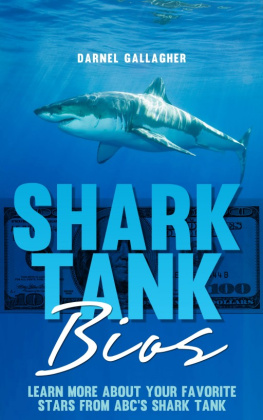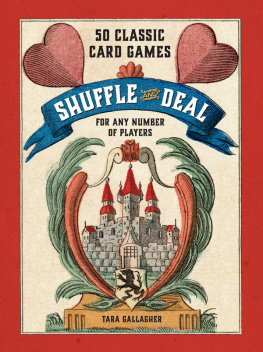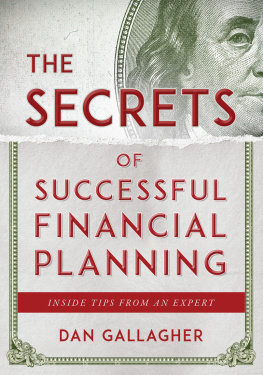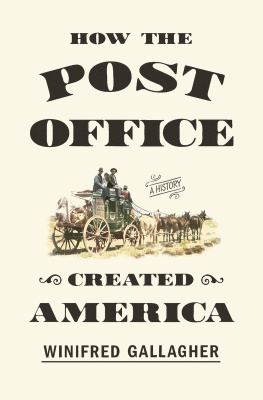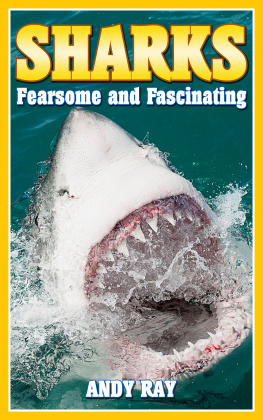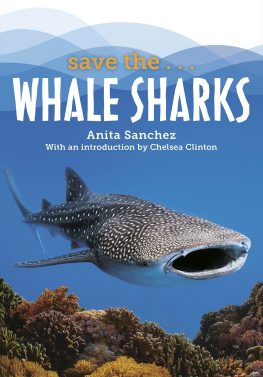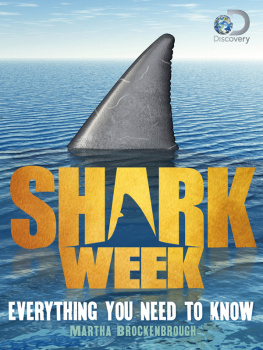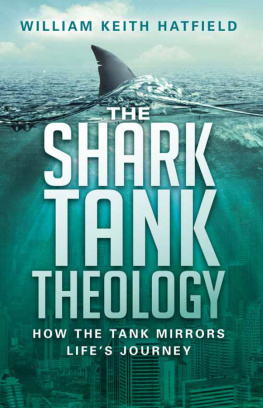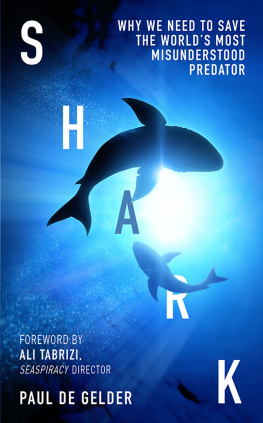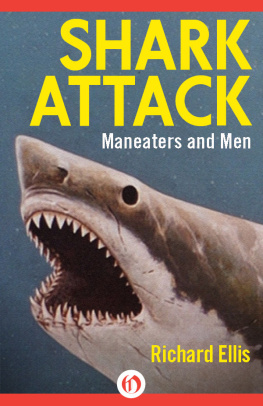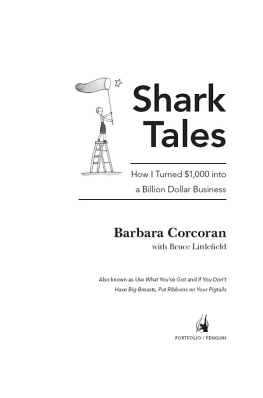Shark Tank Bios
By DarnelGallagher
Welcome to the Shark Tank ~ DaymondJohn ~ Mark Cuban ~ Lori Greiner ~ Kevin OLeary ~ Barbara Corcoran~ Robert Herjavec ~ Shark Similarities ~ Five Pieces of Shark Bait~ Shark Tank Bios Summary ~ Contact details ~ References andacknowledgements
The author does not purport to haveengaged directly with the subjects in this eBook. The author hasreferred to third party sources in order to gather information. Asof publication time, the URLs displayed in this book, link or referto existing websites on the Internet. The author cannot beresponsible for third party material.
This eBook is licensed for yourpersonal enjoyment only. This eBook may not be re-sold or givenaway to other people. If you would like to share this book withanother person, please purchase an additional copy for eachrecipient. If youre reading this book and did not purchase it, orit was not purchased for your use only, then please return toAmazon.com and purchase your own copy. Thank you for respecting thehard work of this author.
All Rights Reserved 2013Darnel Gallagher
SmashwordsEdition
TABLEOF CONTENTS
We all love a tale of theAmerican dream, where the boy next door turns $10 into $10 million,and the girl next door invents something that will change theworld. ABCs hit TV show Shark Tank is the placewhere these dreams turn into reality or sometimes into a realitycheck.
The Shark Tank sees buddingentrepreneurs pitch their ideas to those who have been there donethat and are now The Sharks. These experienced entrepreneurs usetheir knowledge and instinct to decide if they will invest in thebusinesses being pitched.
While it is fascinating to see thedrama unfolding in The Tank, it is even more fascinating to gobehind the scenes and find out how The Sharks made theirmillions.
From the humble fields of Croatia tothe tough streets of New York, the Sharks all have their stories totell. You will be inspired by what they have achieved and thestories that have shaped them.
Shark Tank Bios brings togethernumerous articles, speeches and interviews to give you a glimpseinside The Sharks own tanks in an unauthorized yet compellingread.
Fromthe streets to the runway.
Falling in love is not newfor the founder of FUBU, DaymondJohn . He says finding hispassion is like being in love. Thats what its like when you havea business you love. I fell in love withFUBU when I saw the first person walking down the street init.
FUBU is an urban street wear labelthat started in Daymonds family basement in 1992 and has producedsales of over six billion dollars. Daymond was motivated by thearrogance of a few established apparel labels that had turned theirbacks on a generation of youth.
Determined to establish a brand forthis alienated group, Daymond coined the original label as BUFU, ByUs, For Us, and later altered the acronym to FUBU, For Us, By Us.This name could not have been more fitting for the brand thattapped into a cultural movement born out of its time andmusic.
Daymond was born in Brooklyn, NewYork, on February 23, 1969. His mother was African American; hisfather West Indian. By the time he was ten, Daymond was beingraised by a determined and resourceful single mother in the toughneighborhood of Hollis, Queens.
Daymonds mother, Margot, was a hugeinfluence on Daymond, teaching him from a young age the importanceof thinking big. Margot would say, It takes the same energy tothink small as to think big.
Margots thinking was liberal for theday. She quit work and mortgaged their home so she could be withDaymond during his impressionable high school years. She even toldDaymond that if he wanted to experiment with drugs, she wouldexperiment with him at their kitchen table. The thought of his momdoing drugs with him was enough to put Daymond off any serioussubstance abuse.
While drugs and drugdealers were a common element in Daymonds neighborhood, thestreets of Queens also taught him valuable lessons. When you arefrom the streets you see a lot of the people around you falling by the wayside. You also become creative and you have to find a way to get outof those streets, says Daymond.
A person who representedthe life Daymond wanted was hip hop mogul Russell Simmons. Daymondsays, When I saw Russell Simmons drivingaround I said no matter what Im going to be part of thatworld.
The transition from the streets tosuccess was not an easy one. In his early twenties Daymond wasstill hustling and waiting on tables as well as going on tours as aroadie with some of the local rappers making a name for themselves.He realized that Hip Hop was hot, and everyone wanted a piece ofit.
He had his first product idea whilewatching a rap video and saw a group wearing black tie-top hats. Hespent $40 on material and turned it into hats that he sold on astreet corner for $800.
Daymond also managed to get his firstten FUBU shirts onto various music videos and the FUBU brand beganto gain recognition. No one realized these ten shirts were beingwashed, pressed, and reused for the different videos.
A strong relationship was formedbetween Daymond and the famous rapper LL Cool J who had been raisedin Hollis. Daymond quickly realized the importance of branding asdid LL Cool J, who was initially reluctant to wear the FUBU labelfor fear of losing his high profile endorsements. Eventually, LLCool J took a chance on Daymond and gave the brand the exposure itneeded.
As the brand began to grow, Daymondjoined forces with three friends and turned his home into amakeshift factory.
The partners promoted FUBU at afashion trade show in Las Vegas from an unofficial booth and usedtheir street smart creativity to land them an order worth $300,000.The pressure was now on for FUBU to find the funds to manufacturethe orders.
It was during this time that Daymondlearned the importance of persistence. He was denied funding by 27banks and was one month away from being homeless and bankrupt. Thisexperience taught him that, Ignorance is the only thing moreexpensive than education.
FUBUs big break came when SamsungElectrical signed onto a distribution deal, however, FUBU wasexpected to make five million dollars in sales within the year.Through FUBUs momentum, hard work, and determination they achievedthis target in a mere twenty days.
FUBU went onto peak, in the late 90s,with a turnover of $350million.
The perceptive Daymond realized thatthe good times could not last as the youth market typically did nothave brand loyalty and were always looking for the next hot thing.As FUBU became too accessible and new brands hit the Americanmarket, the sales cooled. FUBU had already been growing their brandin Asia and as American sales slowed, sales in Asia tookoff.
In 2010, FUBU wasreinvigorated in the American market through a line called FBLegacy. Daymond is still CEO of FUBU, however, he has otherprojects he works on. He has written two successful books, The Brand Within and Display ofPower , and enjoys mentoring theentrepreneurs on Shark Tank. Im doing something I love. I loveeducating people. I love making deals.
Doing what you love is the adviceDaymond gives to all would-be entrepreneurs. He says, Be somebodywho loves what theyre doing. Make an affordable step forward andlearn and repeat. He also shares the secrets of successful people:They set a goal, and they can visualize themselves in the placethey want to be. You cannot hit a target you cannot see. They studywhat they are going to do. Then they absolutely will not take nofor an answer. He adds, Never ever give up on your dreams becausewhat else do you have to live for?
Perhaps the best piece of advice thatDaymond has is one that sums up his business ethic. The easiestthing to sell in the world is the truth. If you know your DNA, ifyou put it out there, people will understand it and respectit.
Next page
